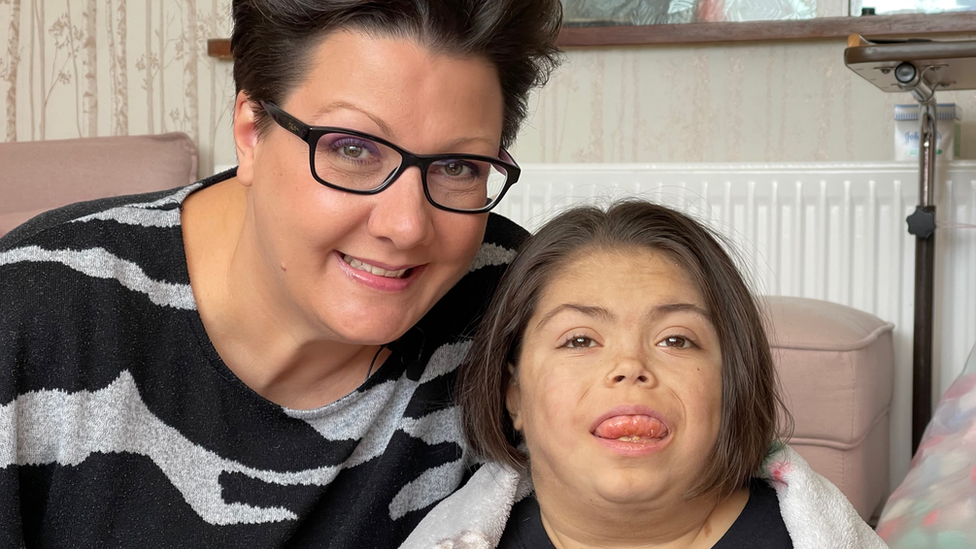Palliative care: 'My dad should not have been expected to die in office hours'
- Published
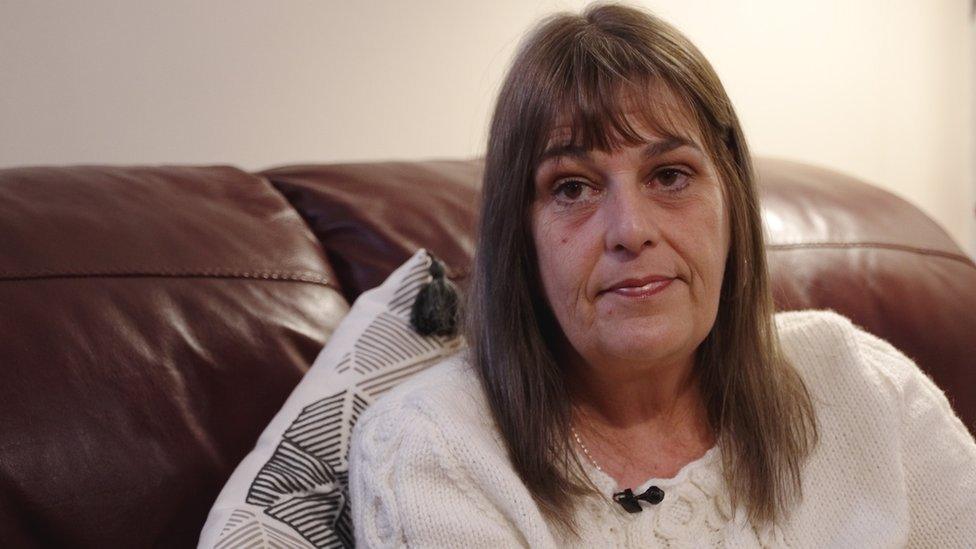
Tracey Bennett says she felt she let her father down when she could not get help in his dying hours
A woman who struggled to access night-time care for her dying father has told the BBC he "shouldn't have been expected to die in office hours".
Tracey Bennett said she was "completely lost" when her dad Michael needed help.
Michael, who was in the final stages of cancer, had fallen late at night and she dialled the local NHS palliative care help-line but it was closed.
Almost 70% of the UK does not have a consistent 24-hour help-line for the terminally ill, research suggests.
And 27% of these areas do not have a designated phone line, the study funded by Marie Curie found.
Ruth Driscoll, from the charity, said the research painted "a bleak picture of out-of-hours care in many areas of the UK".
'I feel I let my dad down'
Early in 2021, Mrs Bennett, 54, from Doncaster, moved in with her dad, 76-year-old Michael Woodward, to care for him in the last stages of his cancer.
One night he had a fall. Mrs Bennett was able to help him back up but turned to the local NHS palliative care phone line for help, only to find it closed.
Although she did not feel her father should be in a hospital, she called 999 as she felt she had no-one else to turn to. He died in the early hours of the next morning.
"In his hour of need I feel I let my dad down," she said. "He shouldn't have been expected to die in office hours."
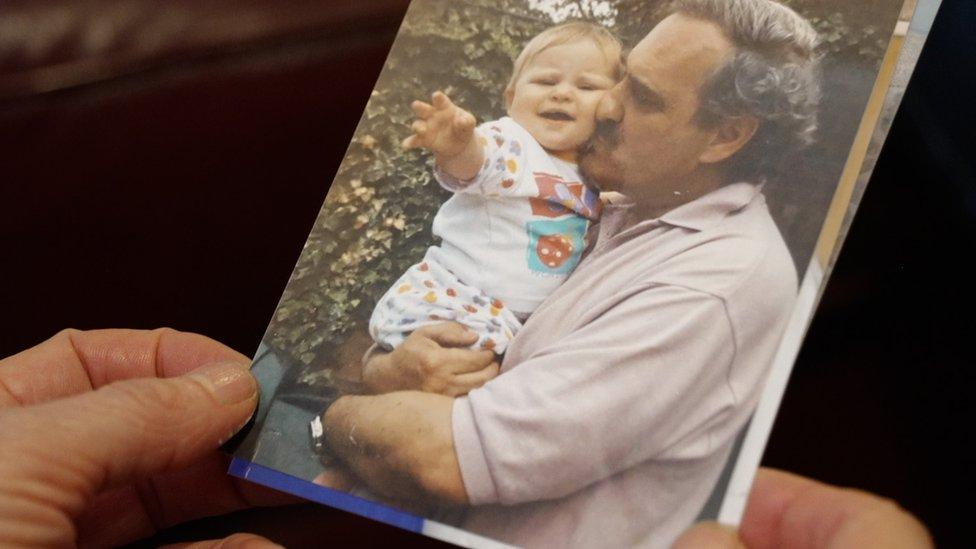
Tracey Bennett holds a picture of her father, Michael Woodward, kissing his granddaughter
Mrs Bennett added: "My dad's illness turned so quickly - a few days before he passed away he was up and about, he was even able to walk to the chemist.
"If I'd known how suddenly he would decline, I would have had time to prepare help. But we were caught off-guard and didn't know where to turn."
Researchers from King's College London, the University of Hull, and University of Cambridge, found that "out-of-hours palliative care is currently inadequate and fragmented".
Marie Curie wants every area of the UK to have a dedicated palliative phone line, staffed 24 hours a day by a specially trained nurse or doctor.
Rosie Carter, 67, a retired nurse from Liverpool, said access to a 24-hour helpline has transformed her quality of life, even as she receives end-of-life care after her breast cancer spread to other parts of her body.
Previously, when her pain worsened during the summer, she had to make repeated trips to A&E.
She said: "By the third time I went to A&E I couldn't even travel by taxi because I couldn't walk that far. I had to go in an ambulance." She was discharged from hospital but her symptoms were not relieved.
Miss Carter eventually contacted the Impact service, a "one-stop shop" for palliative care in Liverpool.
The integrated service is made up of NHS doctors, specialist nurses and therapists, and patients can self-refer to the hub via a 24-hour phone line.
It was set up by Marie Curie, the Woodlands Hospice and the NHS in 2021 and they say it is an example of best practice.
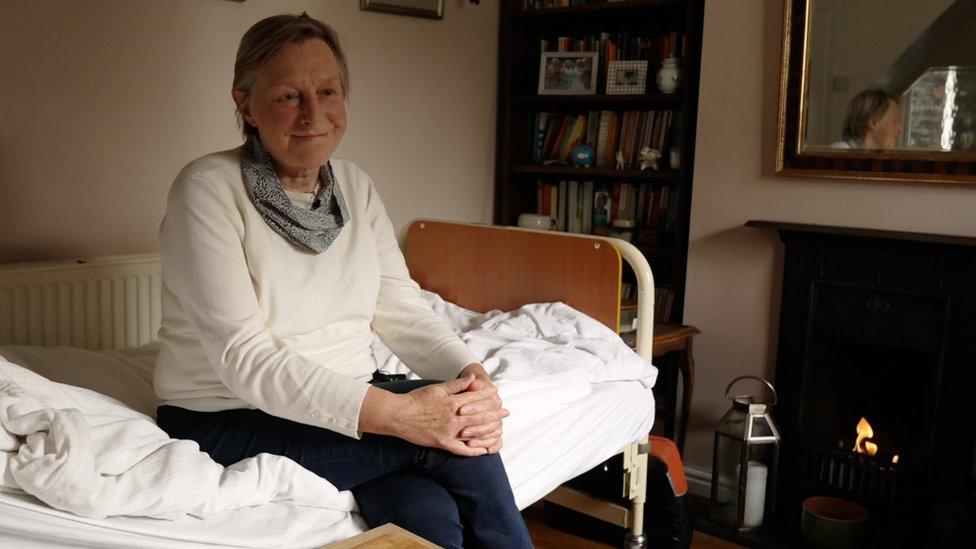
Rosie Carter says a dedicated palliative care hotline has improved her quality of life with incurable cancer
The hub has helped reduce emergency hospital trips for end-of-life patients in Liverpool by 44%, easing pressure on A&E.
Miss Carter said she wished she had called the number sooner. An occupational therapist and a physiotherapist were sent to her home and they also arranged stronger pain medication. She is now living comfortably at home.
"It has meant the world to me," she said. "I mean, my cancer is not curable… I'm not interested in the quantity of life I've got left, just the quality of life that I have makes all the difference in the world."
Lead researcher Prof Katherine Sleeman, from King's College, said: "Because we know that demand for palliative and end-of-life care will increase over the next decade, it is essential that the gaps in services out of hours are addressed."
The Department for Health and Social Care said: "As part of the Health and Care Act 2022, we added palliative care services to the list of services that must be provided in any local area to ensure a more consistent national approach.
"NHS England has published statutory guidance to support the commissioning of these vital services, referencing the need to provide support on evenings and weekends."
Related topics
- Published17 March 2022
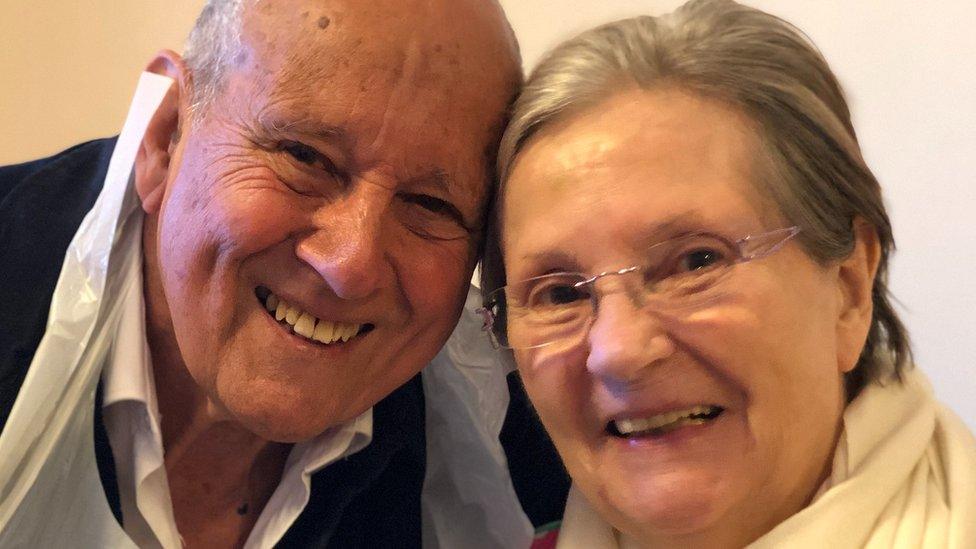
- Published13 February 2021
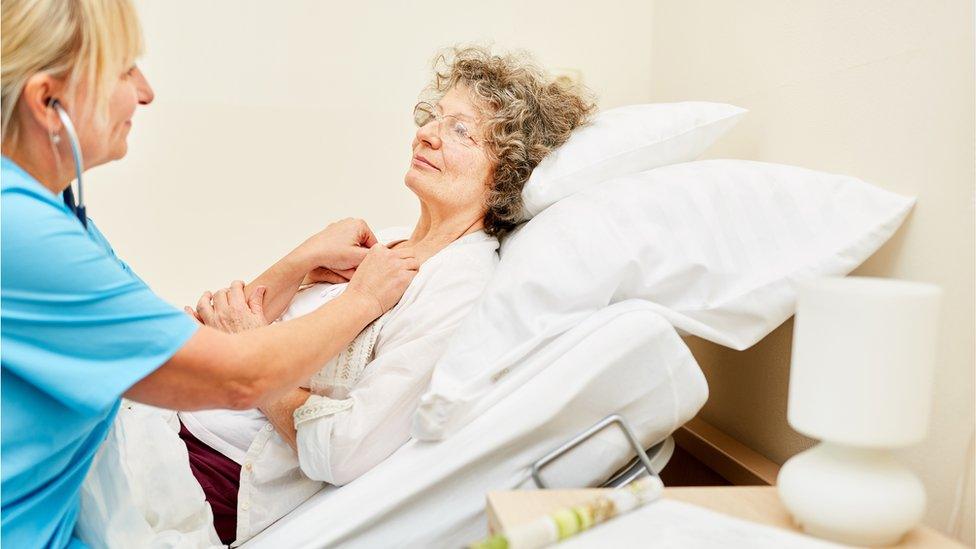
- Published11 June 2019

- Published27 September 2022
